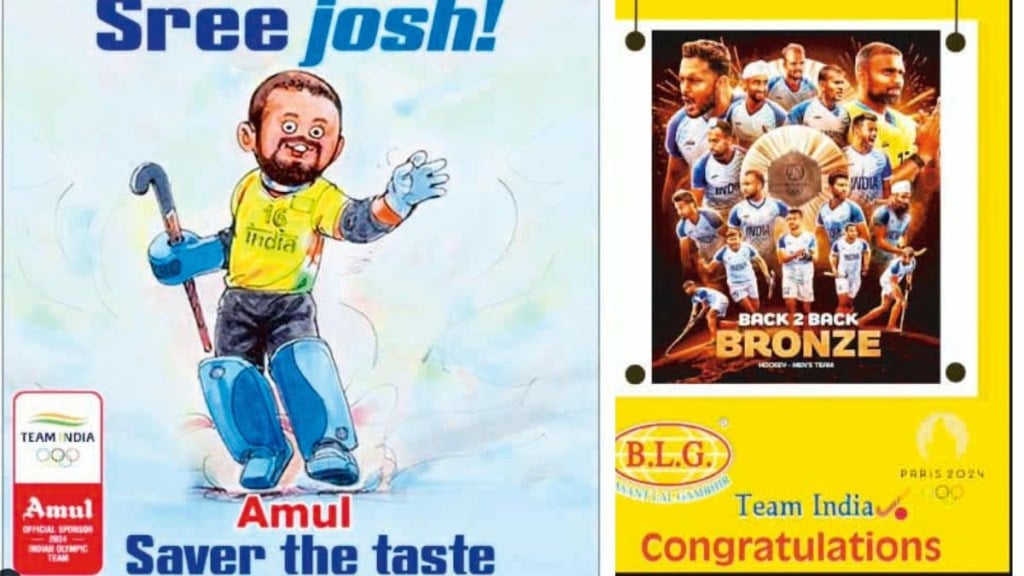Could 2024 see the end of celebratory moment marketing?
Even before they touched down on Indian soil, talent marketing agencies IOS Sports & Entertainment and Baseline Ventures shot off legal notices on behalf of Olympic bronze medallist Manu Bhaker and hockey goalie PR Sreejesh to a host of brands for using their clients’ names and imagery in their marketing campaigns without permission.
We haven’t heard the end of that story yet but as more and more sporting celebrities and Bollywood stars crack down on brands that use or reference them without contract, the signal is clear: If you want to include a celebrity in an advertisement, you’re probably going to have to pay them for it.
Mind you, piggybacking on a celebrity’s recent success to hurl a marketing message at consumers is nothing new. Brands have done that for decades to serve up a quick dose of star sparkle at zero cost. And if your chosen guest-celebrity ends up in hot water a few months down the line, you’re probably outside the collateral-damage zone.
It seems celebrities have had enough of brands exploiting their success. In 2021, PV Sindhu and her agency Baseline Ventures dragged about two dozen brands to court; more recently actors Jackie Shroff and Anil Kapoor knocked on the doors of the Delhi High Court alleging infringement of personality rights. How have brands got away with it thus far?
Moment marketing occupies a legal gray area, with protections for celebrity rights partially covered under the Copyright Act 1957, and consumer protection guidelines. But these laws do not fully address the complexities of using an athlete’s image without permission, leaving room for disputes, notes Saurya Bhattacharya, partner, JSA Advocates & Solicitors. He says, “The position on this has evolved through case laws and contract. Typically, it is viewed as a balancing act between freedom of speech and expression, an individual’s right to privacy and their right to commercially gain from their own publicity.”
With celebrities getting some success suing advertisers for the unauthorised use of their images under the right of publicity laws, don’t be surprised if you find yourself in the courtroom next time you get carried away with the celebrations. Let’s face it, you don’t have time to draw out an elaborate contract and competitors can beat you at the post with digital simulations and image-melding technology. So what is the best way to balance your moment marketing chops with the legal and ethical requirements?
Balancing act
Abhishek Issar, founder, UNIV Sportatech, & founding member, Federation of ESports Associations India, cites Amul as a brand that has perfectly captured the essence of an event’s success without infringing on the personal rights an athlete. “Brands should be mindful of the difference between celebrating an athlete’s achievement and infringing on their rights. While simply acknowledging an athlete’s success in a broad, non-commercial way may be acceptable, adding a tagline or promotional offer crosses into infringement.”
The challenge lies in navigating legal restrictions while still engaging with the consumer on an emotional level. Yash Kulshresth, co-founder & chief creative officer, Atom Network, suggests focusing on related figures, such as a coach, to stay within legal bounds while capturing the essence of the moment. He says, “Take Manu Bhaker. Maybe I’ll go to her first coach because he or she has actually sown the seed of her success. This way I will use the opportunity but I will not use the celebrity.”
A brand can also latch on to the sentiment and the joy of victory without flashing the celebrity concerned, says Pinaki Dasgupta, professor of Marketing, IMI New Delhi. He cites the example of Bournvita, which has singlemindedly focused on “tayyari jeet ki” rather than the ‘victory’ itself — a strong proposition that can connect with any moment in sports or an achievement-oriented effort. “The brand simply has to make its presence felt with their visible communication collaterals. The rest is subtly expressed through the communication — that is moment marketing,” he sums up.
Use opportunity, not celebrity
Using celebrity name, imagery or likeness without permission infringes on the individual’s right of publicity and potentially implies a false endorsement.The legal position on the unauthorised use of celebrity name or imagery has evolved through case laws and contract to do so potentially sidesteps ethical requirements that can undermine brand credibility In recent years celebrities have got some success in preventing such unauthorised usage in ads.
